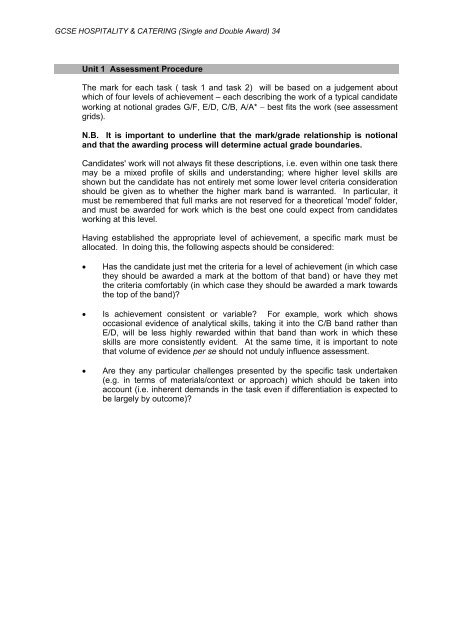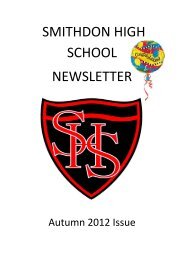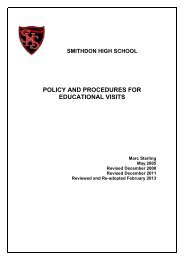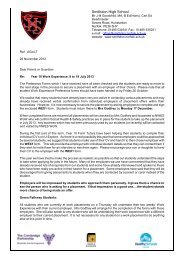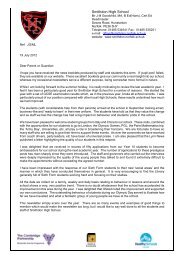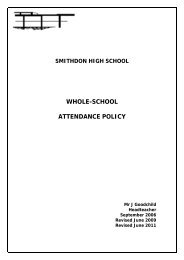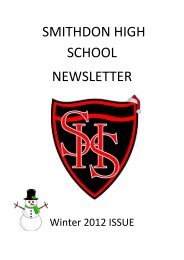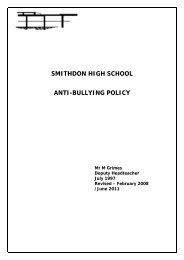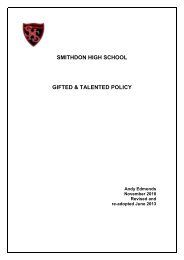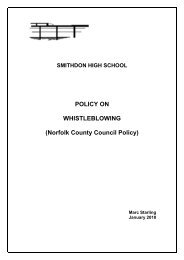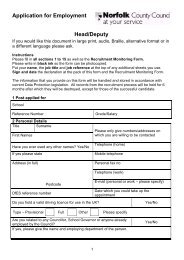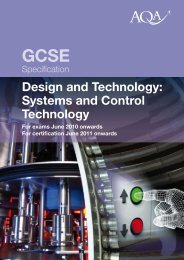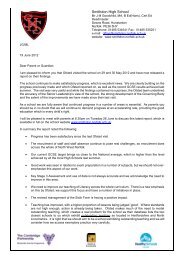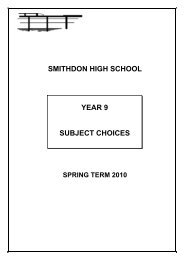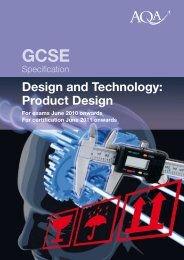Catering 4539.pdf - Smithdon High School, Hunstanton, Norfolk
Catering 4539.pdf - Smithdon High School, Hunstanton, Norfolk
Catering 4539.pdf - Smithdon High School, Hunstanton, Norfolk
Create successful ePaper yourself
Turn your PDF publications into a flip-book with our unique Google optimized e-Paper software.
GCSE HOSPITALITY & CATERING (Single and Double Award) 34<br />
Unit 1 Assessment Procedure<br />
The mark for each task ( task 1 and task 2) will be based on a judgement about<br />
which of four levels of achievement – each describing the work of a typical candidate<br />
working at notional grades G/F, E/D, C/B, A/A* − best fits the work (see assessment<br />
grids).<br />
N.B. It is important to underline that the mark/grade relationship is notional<br />
and that the awarding process will determine actual grade boundaries.<br />
Candidates' work will not always fit these descriptions, i.e. even within one task there<br />
may be a mixed profile of skills and understanding; where higher level skills are<br />
shown but the candidate has not entirely met some lower level criteria consideration<br />
should be given as to whether the higher mark band is warranted. In particular, it<br />
must be remembered that full marks are not reserved for a theoretical 'model' folder,<br />
and must be awarded for work which is the best one could expect from candidates<br />
working at this level.<br />
Having established the appropriate level of achievement, a specific mark must be<br />
allocated. In doing this, the following aspects should be considered:<br />
• Has the candidate just met the criteria for a level of achievement (in which case<br />
they should be awarded a mark at the bottom of that band) or have they met<br />
the criteria comfortably (in which case they should be awarded a mark towards<br />
the top of the band)?<br />
• Is achievement consistent or variable? For example, work which shows<br />
occasional evidence of analytical skills, taking it into the C/B band rather than<br />
E/D, will be less highly rewarded within that band than work in which these<br />
skills are more consistently evident. At the same time, it is important to note<br />
that volume of evidence per se should not unduly influence assessment.<br />
• Are they any particular challenges presented by the specific task undertaken<br />
(e.g. in terms of materials/context or approach) which should be taken into<br />
account (i.e. inherent demands in the task even if differentiation is expected to<br />
be largely by outcome)?


